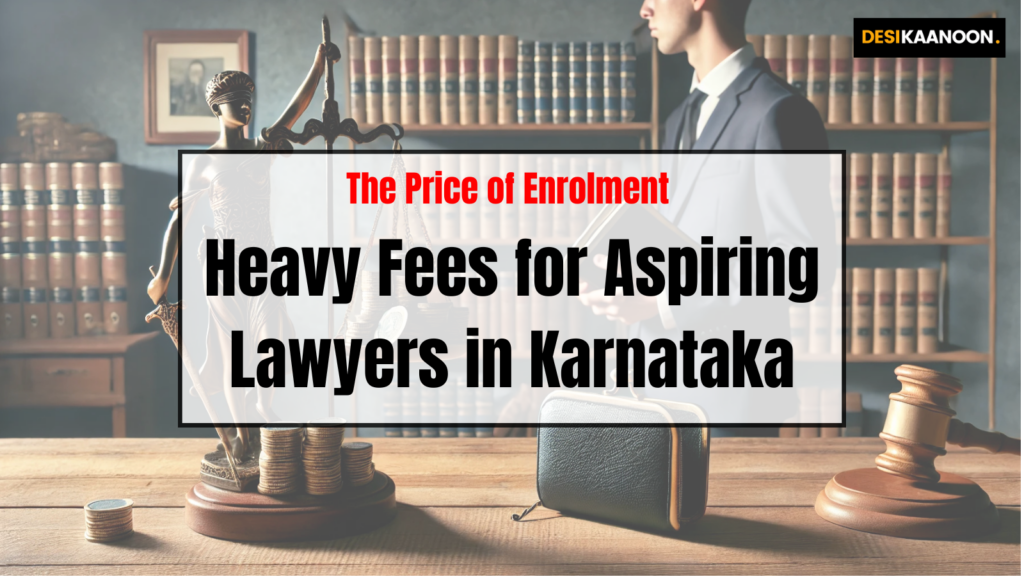Alok Singh
The Bar Council of India’s (BCI) recent plea to the Supreme Court to raise the enrolment fee for advocates from ₹750 to ₹25,000 has sparked debate, particularly about its impact on economically disadvantaged law students and lawyers.
Meanwhile, law graduates in Karnataka face steep increase in the enrolment fees from the Karnataka State Bar Council (KSBC), despite a 2024 Supreme Court ruling in Gaurav Kumar v. Union of India capping fees at ₹750 for general candidates and ₹125 for Scheduled Castes/Scheduled Tribes (SC/ST).
Although KSBC revised its fees to comply nominally with the ruling, applicants still pay additional charges, including an “optional” welfare fee of ₹6,800. General category candidates pay ₹9,930, while SC/ST candidates pay ₹9,225. Despite being labelled optional, this fee is effectively mandatory, with 2,764 applicants paying the full amount between September and November 2024 and another 450 in January 2025.
KSBC defends the fees necessary for advocate welfare, citing the Karnataka Advocates Welfare Fund (KAWF) fee of ₹2,100, which provides benefits like medical and death claims and other charges for workshops and ID cards. KSBC chairperson Vishala Raghu LM highlighted the financial strain of office expenses, including ₹9.66 lahks in monthly salaries and additional costs for enrolment-related logistics, arguing that the statutory fees set in 1961 are outdated.
The KSBC has discussed amending the Advocates Act to raise fees but continues to rely on applicants to cover its costs. Critics argue this places an undue burden on aspiring lawyers, especially those from marginalized backgrounds. Whether meaningful reform will address these concerns remains uncertain.

